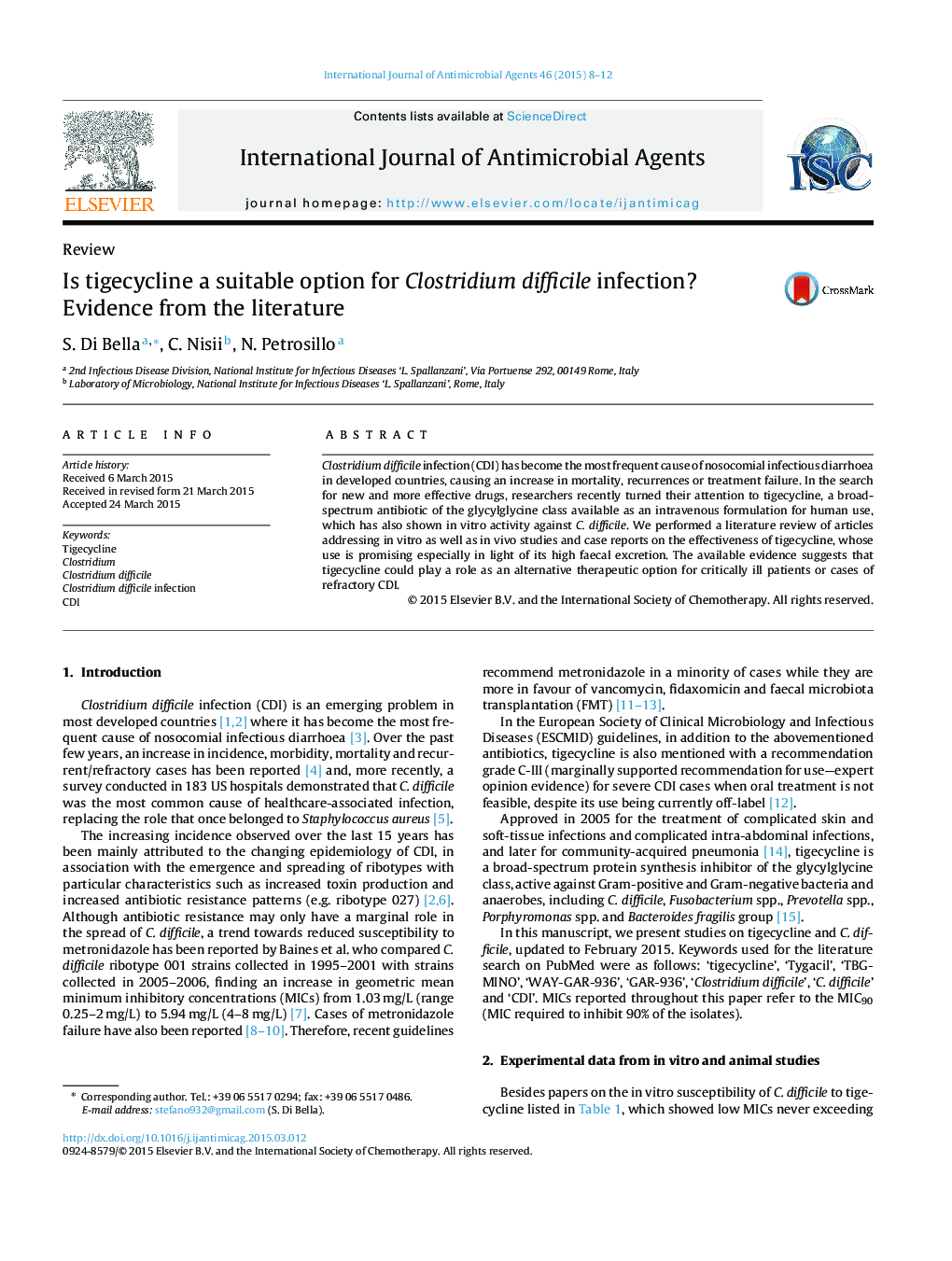| Article ID | Journal | Published Year | Pages | File Type |
|---|---|---|---|---|
| 3358617 | International Journal of Antimicrobial Agents | 2015 | 5 Pages |
•Tigecycline has shown in vitro activity against Clostridium difficile.•Tigecycline's disrupting effect on the microflora is counterbalanced by its anti-Clostridium effect.•Tigecycline plays a role in reducing C. difficile sporulation and toxin production.•Clinical reports on the use of tigecycline for C. difficile infection in humans mainly show good clinical outcomes.
Clostridium difficile infection (CDI) has become the most frequent cause of nosocomial infectious diarrhoea in developed countries, causing an increase in mortality, recurrences or treatment failure. In the search for new and more effective drugs, researchers recently turned their attention to tigecycline, a broad-spectrum antibiotic of the glycylglycine class available as an intravenous formulation for human use, which has also shown in vitro activity against C. difficile. We performed a literature review of articles addressing in vitro as well as in vivo studies and case reports on the effectiveness of tigecycline, whose use is promising especially in light of its high faecal excretion. The available evidence suggests that tigecycline could play a role as an alternative therapeutic option for critically ill patients or cases of refractory CDI.
